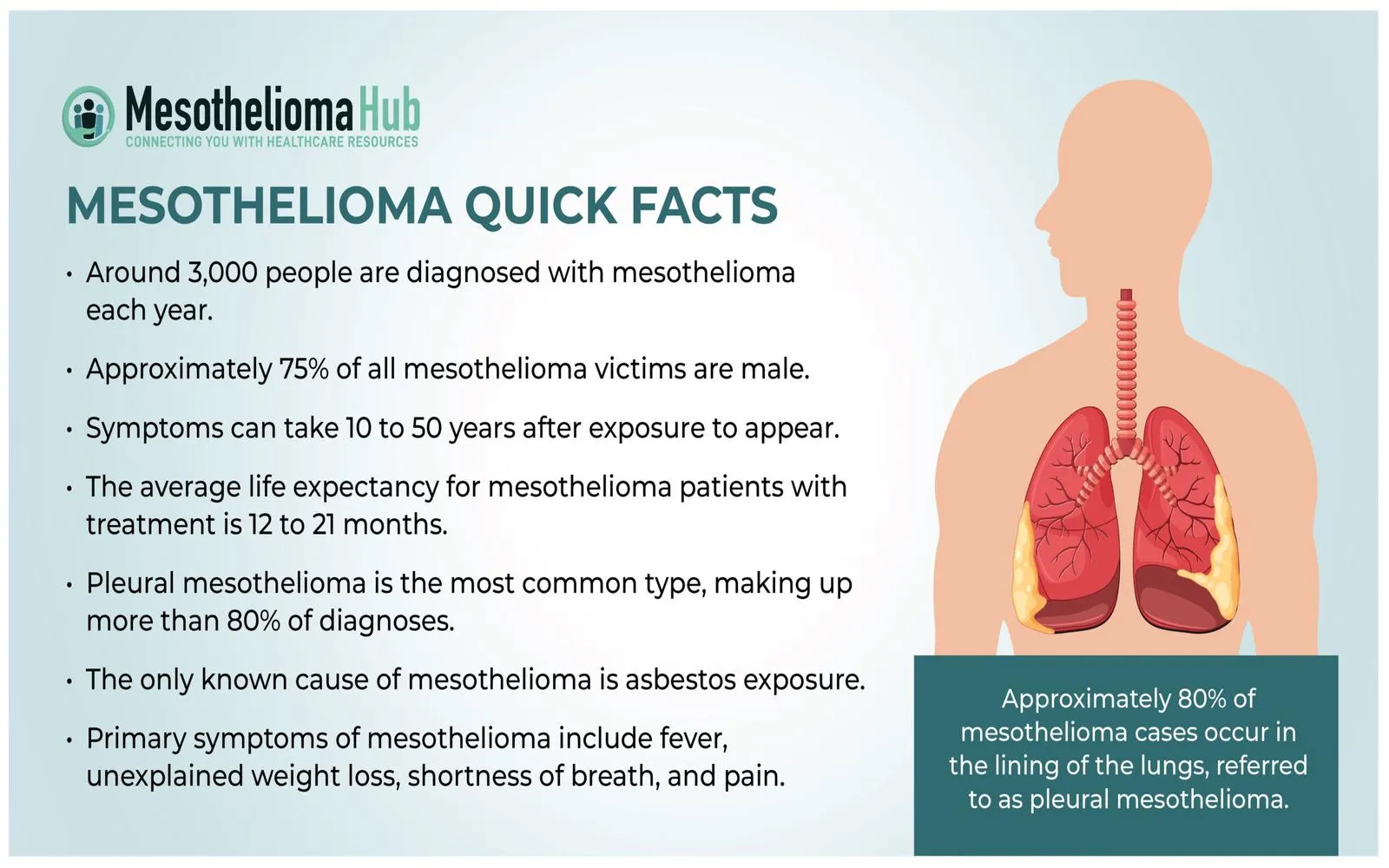As we move into 2025, advancements in science and medical technology continue to reshape the landscape of mesothelioma care. This rare and aggressive cancer, primarily caused by asbestos exposure, has long been a challenge for patients and healthcare providers alike. Understanding the latest treatment choices available can empower patients and their families as they navigate this difficult journey.
Understanding Mesothelioma
Mesothelioma is a cancer that affects the mesothelium, the thin layer of tissue that covers many internal organs. The most common type is pleural mesothelioma, which affects the lining of the lungs. Other forms include peritoneal, pericardial, and tunica vaginalis mesothelioma. Early diagnosis is crucial for effective treatment, as it significantly impacts prognosis.
Current Treatment Options in 2025
As of 2025, mesothelioma treatment options have evolved significantly, offering hope to patients through a combination of traditional and innovative therapies. The main categories of treatment include:
- Surgery
- Chemotherapy
- Radiation Therapy
- Immunotherapy
- Targeted Therapy
- Clinical Trials
Surgery
Surgical options remain a cornerstone of mesothelioma treatment. Depending on the stage of the cancer, patients may undergo:
- Extrapleural Pneumonectomy (EPP): This extensive surgery involves the removal of a lung, the pleura, diaphragm, and affected tissue.
- Pleurectomy/Decortication (P/D): A less invasive option that removes the pleura and visible tumors while preserving lung function.
In 2025, surgical techniques have become less invasive, and robotic-assisted surgeries are gaining traction, leading to faster recovery times.
Chemotherapy
Chemotherapy continues to be a standard treatment for mesothelioma, often used in combination with surgery or as a primary treatment for patients who are not surgical candidates. The most common chemotherapy agents include:
- Pemetrexed (Alimta)
- Cisplatin
In recent years, the introduction of new chemotherapy regimens has improved outcomes, and personalized medicine approaches are being researched to tailor treatments based on individual patient profiles.
Radiation Therapy
Radiation therapy can be used either as a primary treatment or as an adjunct to surgery. In 2025, advancements in radiation technology have led to more precise targeting, minimizing damage to surrounding healthy tissue. Techniques such as:
- Stereotactic Body Radiation Therapy (SBRT)
- Intensity-Modulated Radiation Therapy (IMRT)
are becoming more common, providing patients with effective options for palliative care as well.
Immunotherapy
Immunotherapy represents a breakthrough in mesothelioma treatment. By harnessing the body's immune system, these therapies aim to fight cancer more effectively. In 2025, several immunotherapy options are available:
- Checkpoint Inhibitors: Drugs like Nivolumab and Pembrolizumab show promise in enhancing the immune response against mesothelioma cells.
- CAR T-cell Therapy: This innovative approach involves modifying a patient's T-cells to better recognize and attack cancer cells.
Clinical trials continue to explore the potential of immunotherapy, offering new hope for long-term survival.
Targeted Therapy
Targeted therapy focuses on specific genetic changes in cancer cells. In 2025, therapies targeting mutations in the BAP1 and other genes are gaining traction. These therapies are designed to attack cancer cells while sparing healthy cells, leading to fewer side effects.
Clinical Trials
Participating in clinical trials is an essential option for many mesothelioma patients. These trials often provide access to cutting-edge treatments not yet available to the general public. Patients should consult with their healthcare team about ongoing trials that may be suitable for their specific situation.
Chart: Overview of Mesothelioma Treatment Options in 2025
| Treatment Type | Description | Stage of Cancer |
|---|---|---|
| Surgery | Removal of tumor and affected tissue | Early to advanced stages |
| Chemotherapy | Use of drugs to kill cancer cells | All stages |
| Radiation Therapy | Targeted radiation to shrink tumors | All stages, especially palliative care |
| Immunotherapy | Boosts immune response against cancer | Advanced stages |
| Targeted Therapy | Targets specific genetic mutations | Advanced stages |
| Clinical Trials | Access to experimental treatments | All stages |
Conclusion
The landscape of mesothelioma care in 2025 offers a multitude of treatment choices that are more personalized and less invasive than ever before. Patients are encouraged to explore all available options, including the latest advancements in medicine and ongoing clinical trials. With the support of a dedicated healthcare team, navigating mesothelioma treatment can lead to improved outcomes and a better quality of life.









